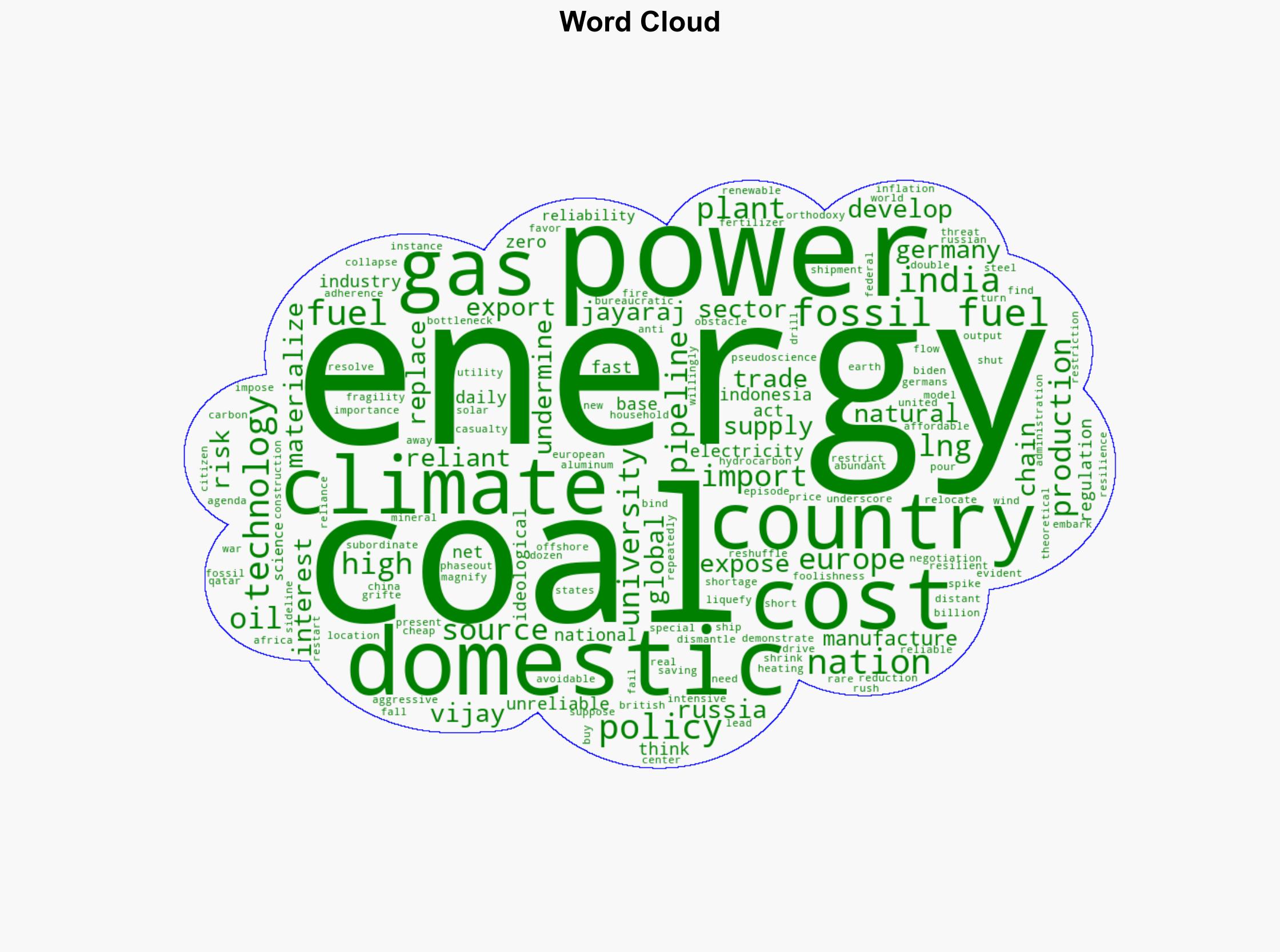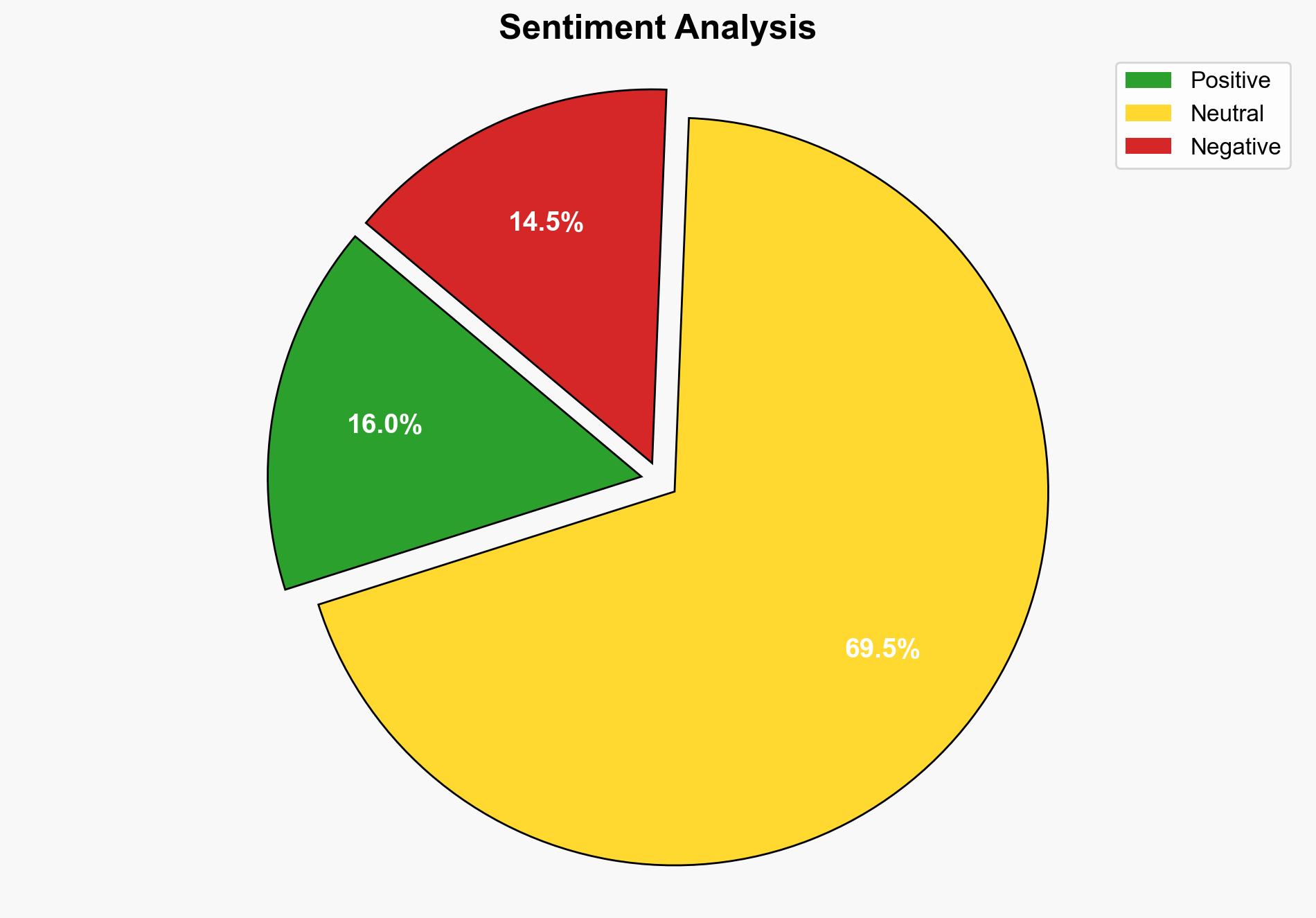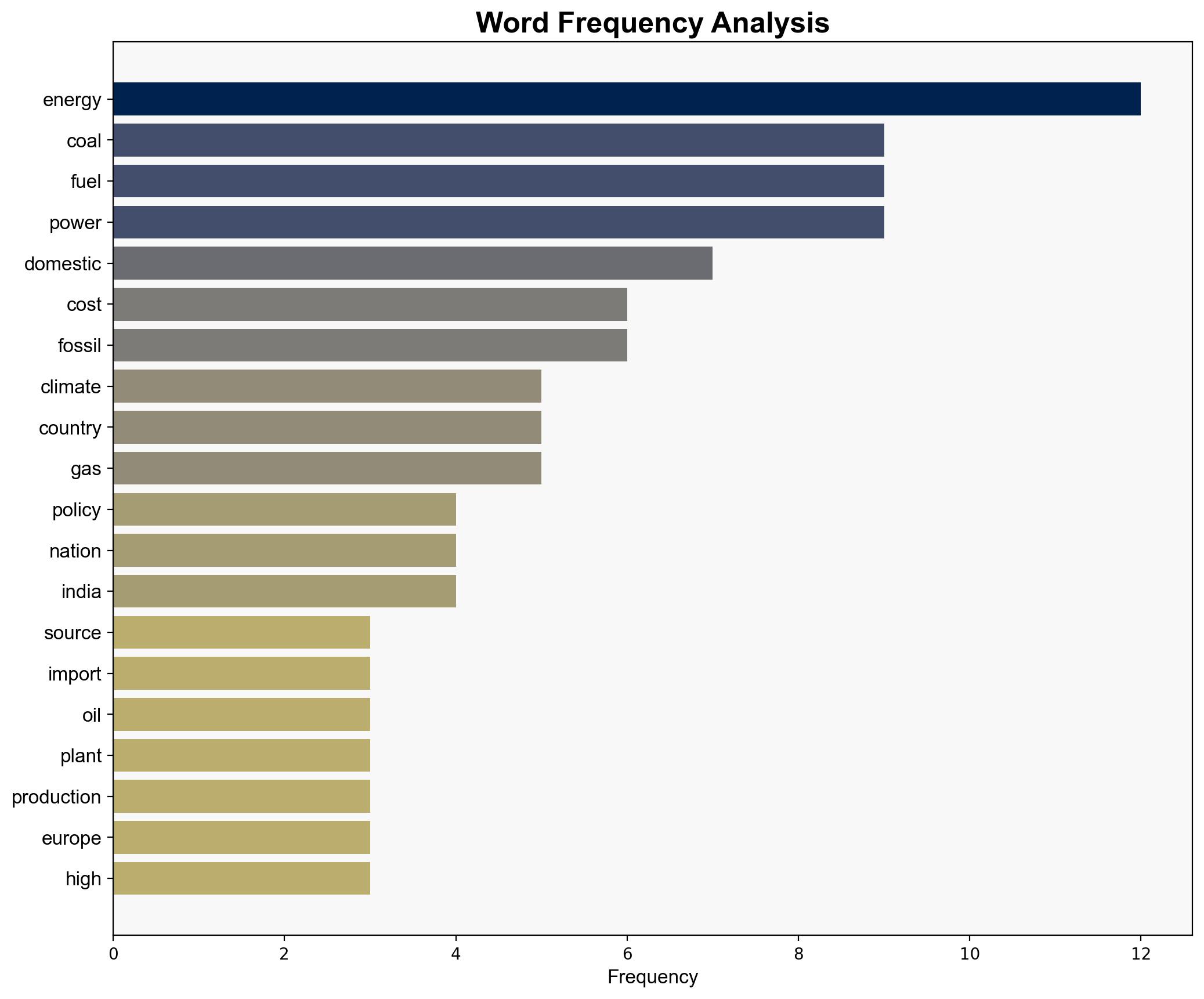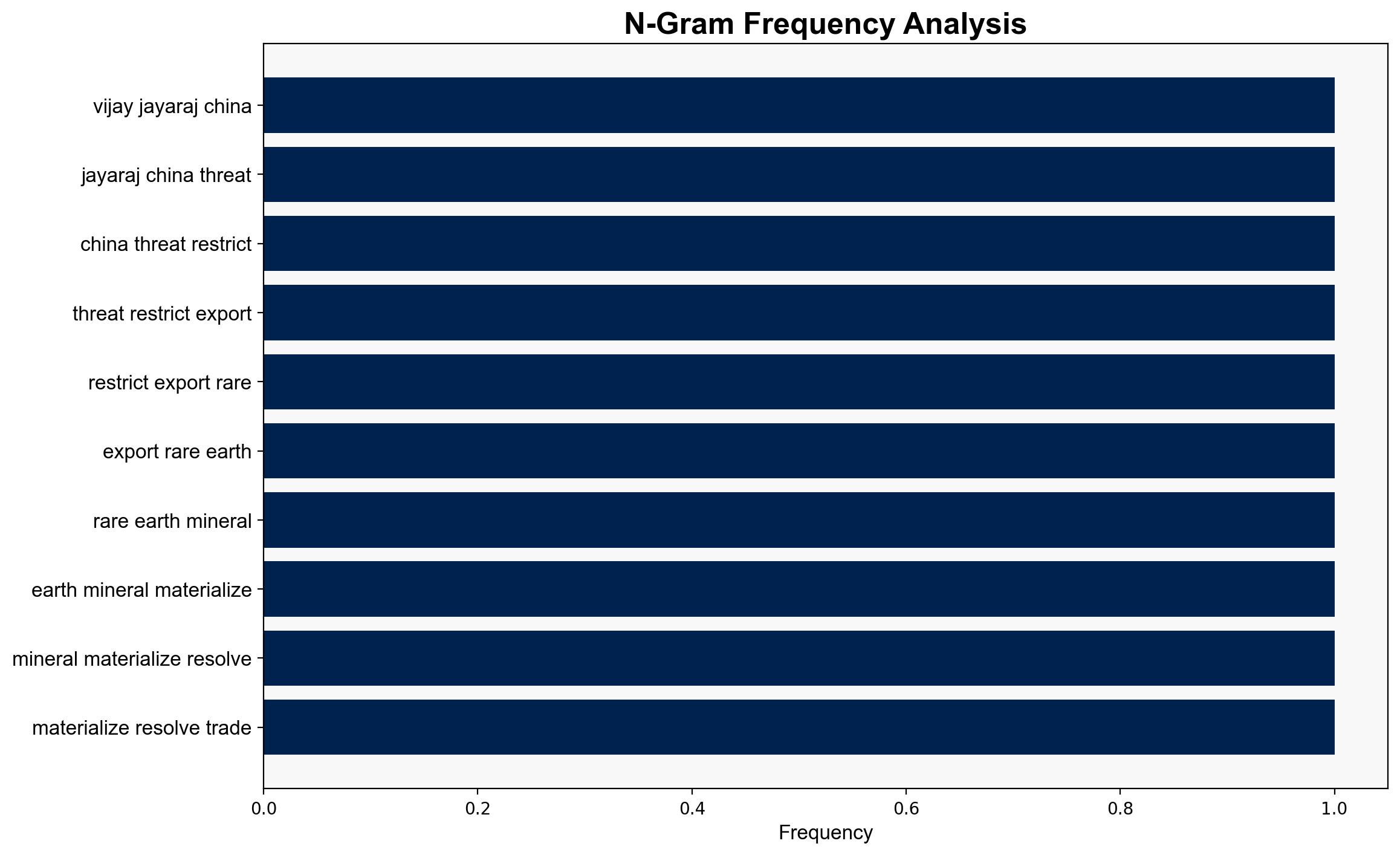China Threat Calls for Ideologically Free Energy Policy – Wattsupwiththat.com
Published on: 2025-10-24
Intelligence Report: China Threat Calls for Ideologically Free Energy Policy – Wattsupwiththat.com
1. BLUF (Bottom Line Up Front)
The strategic judgment indicates a moderate confidence level that the current global energy policies, heavily influenced by climate change agendas, may undermine national security and economic stability. The hypothesis that prioritizing energy pragmatism over ideology is more supported. Recommended action includes diversifying energy sources and reinforcing domestic energy production capabilities.
2. Competing Hypotheses
1. **Hypothesis A**: Ideologically driven energy policies, such as the aggressive phase-out of fossil fuels, are increasing national vulnerabilities by making countries overly reliant on imports and exposing them to geopolitical risks.
2. **Hypothesis B**: Transitioning to renewable energy sources is essential for long-term sustainability and security, and current challenges are temporary setbacks that will be resolved as technology and infrastructure improve.
Using the Analysis of Competing Hypotheses (ACH) 2.0, Hypothesis A is better supported by the evidence of increased energy costs, supply chain fragility, and geopolitical dependencies highlighted in the source text.
3. Key Assumptions and Red Flags
– **Assumptions**: The assumption that fossil fuels are inherently more reliable than renewable sources underpins Hypothesis A. Hypothesis B assumes technological advancements will mitigate current challenges.
– **Red Flags**: Potential bias in the source towards fossil fuel advocacy. Lack of data on successful renewable energy implementations and their long-term benefits.
– **Blind Spots**: The analysis may overlook the environmental and social costs of continued fossil fuel reliance.
4. Implications and Strategic Risks
– **Economic Risks**: Increased energy costs could lead to inflation and reduced industrial competitiveness.
– **Geopolitical Risks**: Dependence on foreign energy sources, especially from geopolitically unstable regions, could compromise national security.
– **Cascading Threats**: Energy shortages could lead to broader economic disruptions and social unrest.
– **Cybersecurity Risks**: Increased reliance on digital infrastructure for energy management could expose systems to cyber threats.
5. Recommendations and Outlook
- **Mitigation**: Develop a balanced energy policy that includes both fossil fuels and renewables to ensure energy security and economic stability.
- **Exploitation**: Invest in advanced fossil fuel technologies to improve efficiency and reduce emissions.
- **Scenario Projections**:
– **Best Case**: Successful integration of diverse energy sources leads to stable and secure energy supply.
– **Worst Case**: Continued ideological adherence leads to severe energy shortages and economic downturns.
– **Most Likely**: Gradual policy adjustments towards a balanced energy mix mitigate immediate risks.
6. Key Individuals and Entities
– Vijay Jayaraj (mentioned in the source text)
– Biden Administration (inferred from context)
7. Thematic Tags
national security threats, energy policy, geopolitical risks, economic stability





